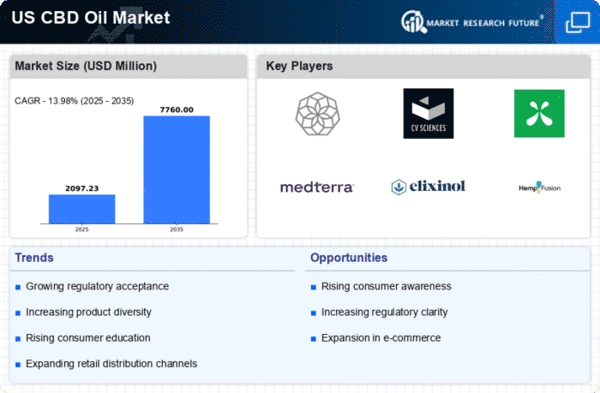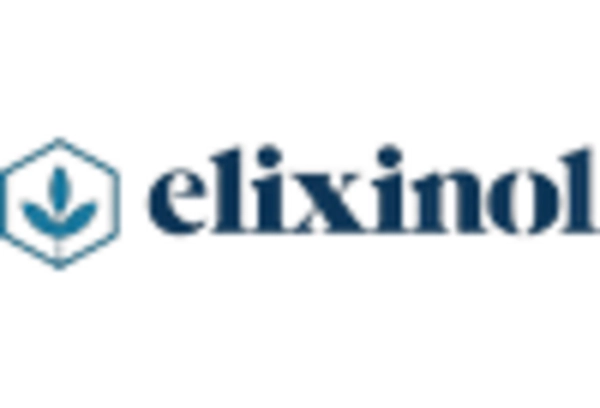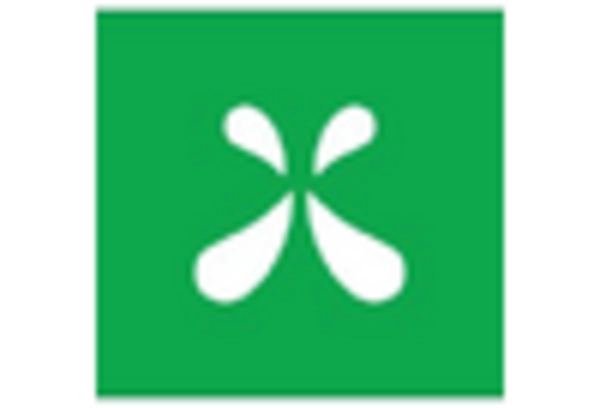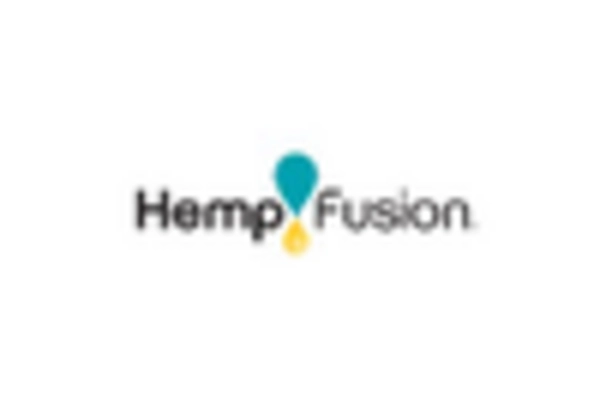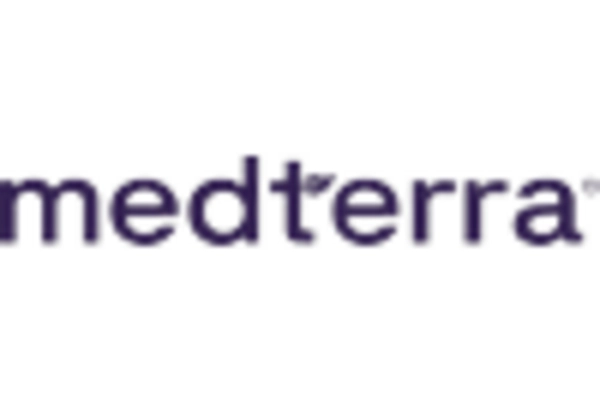Evolving Legal Landscape
The evolving legal framework surrounding hemp-derived products is a significant driver for the cbd oil market. Legislative changes at both state and federal levels have facilitated the growth of the industry, allowing for increased accessibility and distribution of cbd oil products. As of November 2025, over 40 states have enacted laws permitting the sale of cbd oil, contributing to a more robust market environment. This legal clarity not only encourages consumer confidence but also attracts investment into the cbd oil market. The potential for further regulatory advancements may enhance market growth, as businesses seek to capitalize on the expanding consumer base and the increasing legitimacy of cbd oil as a viable product.
Growing Health Consciousness
The increasing awareness of health and wellness among consumers appears to be a pivotal driver for the cbd oil market. As individuals seek natural alternatives to traditional pharmaceuticals, the demand for cbd oil products has surged. According to recent data, the market is projected to reach approximately $20 billion by 2025, reflecting a compound annual growth rate (CAGR) of around 25%. This trend indicates a shift towards holistic health solutions, with consumers gravitating towards products perceived as safe and effective. The cbd oil market is likely to benefit from this growing health consciousness, as more individuals incorporate cbd oil into their daily wellness routines, potentially leading to a broader acceptance and usage of these products across various demographics.
Innovative Product Development
Innovation within the cbd oil market is driving consumer interest and expanding market reach. Companies are increasingly introducing a diverse array of products, including edibles, beverages, and topical applications, catering to varying consumer preferences. This diversification is crucial, as it allows brands to target specific demographics and lifestyle choices. Recent market analysis indicates that the edibles segment alone is expected to account for over 30% of the total market share by 2025. Such innovation not only enhances consumer engagement but also fosters brand loyalty, as customers are more likely to explore new offerings. The continuous development of unique formulations and delivery methods may further solidify the cbd oil market's position in the broader health and wellness sector.
Increased Online Retail Presence
The rise of e-commerce has transformed the cbd oil market, providing consumers with unprecedented access to a variety of products. Online platforms enable consumers to compare products, read reviews, and make informed purchasing decisions from the comfort of their homes. As of November 2025, online sales are projected to account for nearly 40% of total cbd oil sales, reflecting a significant shift in consumer buying behavior. This trend is likely to continue as more consumers embrace the convenience of online shopping. Additionally, the ability to reach a wider audience through digital marketing strategies may enhance brand visibility and drive sales growth within the cbd oil market. The integration of technology in retail is expected to play a crucial role in shaping the future landscape of the industry.
Rising Demand for Natural Remedies
The increasing preference for natural remedies over synthetic alternatives is a notable driver for the cbd oil market. Consumers are becoming more discerning about the ingredients in their products, leading to a heightened interest in plant-based solutions. This trend is particularly evident among younger demographics, who are more inclined to seek out natural health products. The cbd oil market is likely to benefit from this shift, as consumers associate cbd oil with fewer side effects and a more holistic approach to health. Market data suggests that the demand for natural health products is expected to grow by approximately 15% annually, further solidifying the position of cbd oil as a preferred choice for those seeking alternative wellness solutions.
.png)

